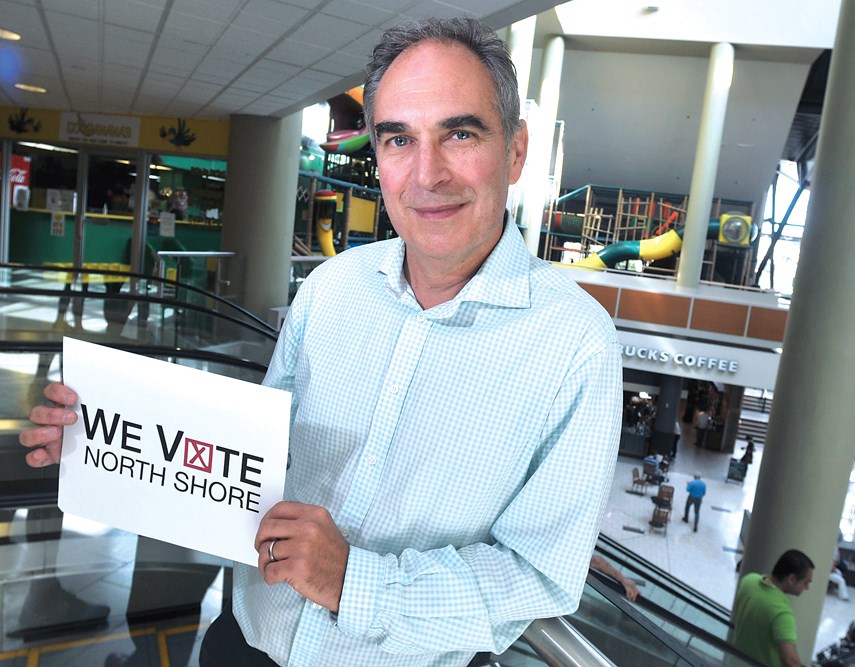In the 2014 election, the City of North Vancouver mayoralty race was decided by fewer than 900 votes. Approximately 23,560 voters stayed home.
In the hopes of boosting voter engagement in the upcoming Oct. 20 municipal elections, Murray Mollard is looking for stories.
Mollard, the executive director of the North Shore Community Resources Society, is asking for old voters, first-time voters, politically minded families and new citizens to share personal stories that highlight the importance of casting a ballot.
“We want to hear those stories,” Mollard said, explaining his hope that the collected stories will inspire more North Shore residents to head to the polls this fall. “(We’re) stirring the pot here, trying to keep the democracy brewing.”
The newly launched website, We Vote North Shore, provides voting information as well as a forum to tell personal stories.
It’s crucial to reach young people and new Canadian citizens, Mollard emphasized.
“If you can get people to vote when they’re first eligible they are more likely to be lifelong voters,” he said.
Mollard, who also spearheaded democracy cafés in the lead-up to the 2015 federal election, said he’s hoping to cultivate a more engaged electorate.
“We all believe democracy works better when there’s a full degree of participation from the citizenry,” he said.
Municipal voting rates are “kind of shocking,” Mollard said, noting the City of North Vancouver led North Shore municipalities with 30 per cent voter turnout in 2014. Approximately 27 per cent of West Vancouverites cast a ballot and only 23 per cent of District of North Vancouverites exercised their democratic rights in 2014.
The dismal numbers elicit a question, according to Mollard: “Does the government really represent the people when so few people vote?”
The competitive mayoralty races shaping up in the City and District of North Vancouver as well as in West Vancouver should result in more voters casting ballots, according to Mollard. A tug of war for the mayor’s chain usually boosts turnout by about five per cent, he said.
“I’m optimistic that there’s a confluence of factors here that will engage the public.”
However, municipal elections are often overlooked due to the misconception they’re unimportant compared to provincial and federal elections, Mollard said.
“Think about all the things that matter in our lives: housing, transportation, schools, recreation, environment, even healthcare. Municipalities do a lot of work in all of these areas,” Mollard said.
While Mollard has taken political positions in the past – such as endorsing an empty homes tax – the initiative is intended to be non-partisan, he said.
“All that we’re doing really, is mirroring what the local governments are providing,” he said.
The most challenging aspect, however, lies in helping voters become informed and engaged in the approximately six weeks between Labour Day and election day.
“It’s going to be a sprint,” Mollard promised.
To learn more or to share your voting story, visit wevotens.ca.



